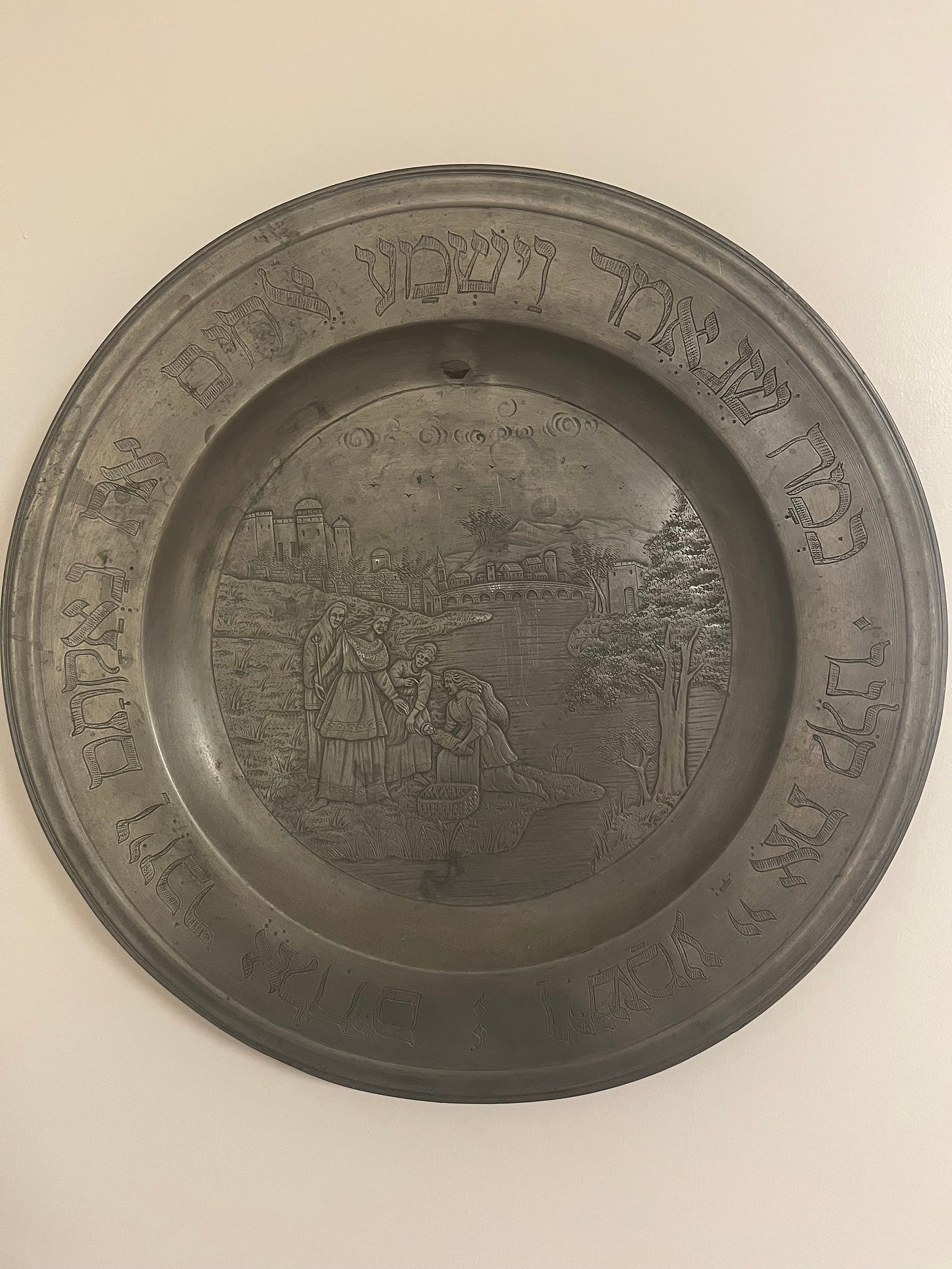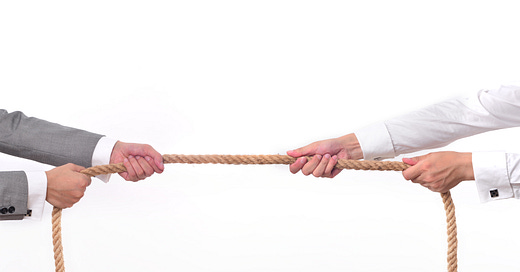Dear Healthy Jew,
Lots of stress going around these days. Passover is a week away, so Jewish families around the world are scrubbing their houses from any vestiges of leavened grains, and then shopping and cooking up a storm for the holiday of freedom. It’s quite intense.
On the political front, the country I live in, Israel, is on the verge of either falling apart or finally coming to its senses, depending on whose opinion you ask about the current Knesset coalition’s locking horns with the judiciary. It’s quite a mess.
What exactly is stress, and what can we do about it?
The first scientist to extensively research the subject, Dr. Hans Selye, described stress in the 1950’s as “the non-specific response of the organism to any pressure or demand.” The original stressor can be large or small, external or internal, real or imagined, but the basic response is the same: we feel threatened and tense up in preparation to fight or fly.
It’s not a bad dictionary definition, but also not very elegant. I’m also stressed about the lack of an intrinsic solution: If I encounter a stressor, my organism will respond with stress, whether I like it or not. So let’s say I need today to work and pray and study and shop and clean the house and watch the kids and write this article, and I perceive these tasks (or their volume) as pressures or demands, I’m condemned to become stressed.
Well, maybe not completely doomed. Perhaps relaxation can balance the tension, loosening up the tightness. Stressed by life? Watch a movie, take a drink, light up a cigarette, or eat some comfort food.
But that’s only a post-stress recalibration, not a path to freedom. I want a solution, not an escape.
For that reason, Victor Frankel’s (1905-1977) encouraging narrative of stress is very useful for me. In his epic Man’s Search for Meaning (pp. 109-110), Frankel explains that “mental health is based on a certain degree of tension,” a principle he learned in the horrors of Auschwitz when he observed that prisoners with tasks waiting for them to accomplish had higher chances of survival. He credited his own recovery from typhus to his deep desire to rewrite a confiscated manuscript, which he began by jotting notes on scraps of paper while bedridden in the dark barracks of a Bavarian concentration camp.
Frankel described healthy stress like this:
The tension between what one has already achieved and what one still ought to accomplish, or the gap between what one is and what one should become.
Therefore, Frankel continued, the therapist shouldn’t hesitate to challenge clients to find meaning that they need to fulfill. He challenges the “dangerous misconception” that people require emotional equilibrium, what biologists call homeostasis; without any tension we’ll sink into an inner void, lost inside an “existential vacuum.”
Simply put, our human psyches are built to journey toward destinations that are larger and deeper than what we’ve already found. Future possibilities beg us not to suffice with past achievements; what we can become prevents resting peacefully with what we already are.
For that reason, as I explained in The Wonders of Walking and Of Walkers and Talkers, health hinges on energetic movement, which takes its basic form in briskly walking through life, always forward, always more. Just flip around the Hebrew word for person, adam, and you get the word for more, meod. “Man” demands “more.”
Good stress pushes us to grow and give. It spurs us into action, saying:
“You are not only what you are today. You are also what you can become. Walk along the road of life, and discover meaning, purpose, and joy.”
Stress becomes a problem when it’s hijacked and intensified by ego, fear, jealousy, or the grandiose desire to control the future. Instead of healthy tension that extends out from the present moment, it urges me to rush after the future. Subverting now-stress’s confident call, future-stress whispers or screams:
“Forget what you’ve already achieved and what you already are. It’s not nearly enough; you must become bigger and better, right now. Past and present are irrelevant; what matters is arriving at the future, quick!”
I’ve spent many years of my life living far in the future, enduring severe stress that hurt my mental and physical health. I feel this stress in my body: chest, shoulders, neck, stomach, back. And I feel it in my spirit: fatigue, worry, irritation, unmet expectations from myself and others.
When I finally got some perspective on my stress, some years ago, I became aware, and I’m not exaggerating here, that much of it was built around a constant urge to research and write several hundred years’ worth of profound wisdom, all over the next few days. I don’t mean a general desire to master the contents of a library, but specific projects that are completely realistic except for their deadlines being several centuries off the mark. No wonder I was always terribly busy, unable to let go and let be.

My journey to healthy tension has been long and complex, with many twists and turns. It’s still very much in progress, perhaps always will be. Yet the fundamental shift from stress’s problem to stress’s solution is profoundly simple, and always available if I seek it.
When I’m suffering from future-stress, carrying today all potential pressures, problems, and obligations, I can choose to pivot back to the present moment, focusing on what I’m doing right here, right now. Instead of deluding myself that I’m already what I’ve decided that I need to become, and if I’ll only try a bit harder then I’ll beat the game and forever bask in fame, I can accept that I am exactly what I am today, briskly walking along toward whatever I will become, in God’s way, at His pace.
Therefore, I’m trying not to live today on Passover, needing for everything to be ready for Seder night. I don’t even want to live a week before Passover, defining today by what lies a week in the future. I’ll do myself well by living today, in the Jewish calendar on the seventh day of Nissan. Of course, much of what I’ll do on 7 Nissan involves the coming holiday, preparing to greet the day of Exodus with excitement and curiosity. But that doesn’t mean I must abandon today for a time that doesn’t exist. Even if somehow Passover never arrives, today’s preparations were completely worthwhile.

This reframing of stress is profoundly simple, but not always easy for me to do. And I’m not the only one. People have been falling in the pit of future-stress for millennia, and have been searching just as long for strategies to climb back out. Every culture in every era has discovered practical methods to flip the epicenter of stress from future fantasies to current vitality and vigor.
In future editions of Healthy Jew, we’ll discuss and digest many of these processes and perspectives. For the present moment, however – which is all that really matters – here’s one tried-and-true tip that I learned from Jon Kabat Zin, the founder of Mindfulness Based Stress Reduction.
One Suggestion: When you find yourself stressed, stop everything, just for a moment, and say out loud, “This is it.” What’s “it”? Whatever one thing you happen to be doing or being, right here, right now. Try this a few hundred times.
Thank you for reading Healthy Jew.
Here are 2 great paths to continue the journey:
Also check out this intro and index to explore hundreds of posts about our 3 Healthy Jew topics: Wellness with Wisdom, Land of Life (Israel), and Sensible Spirituality.
Finally, always feel free to reach out here with any comments, questions, or complaints:
I look forward to hearing from you!
Be well,
Rabbi Shmuel Chaim Naiman
Please note: All content published on Healthy Jew is for informational and educational purposes only. Talk to a qualified professional before taking any action or substance that you read about here.










